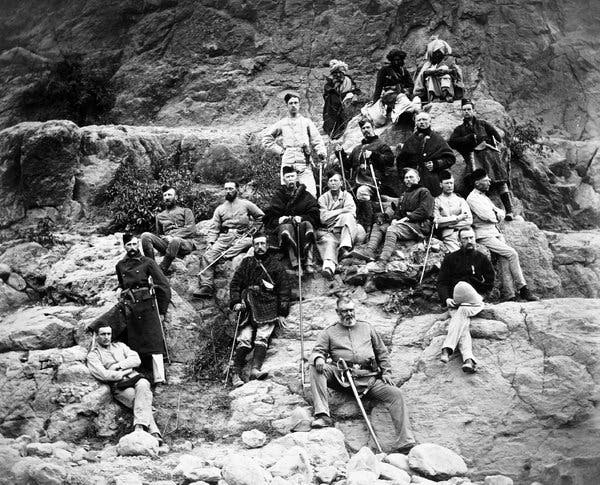
Today, I had planned to write about Afghan refugee issues, and also draw some lessons from the past, noting that Pakistan has been the main hosting country for Afghan refugees, quite successfully, over two score years. But being a columnist, it is probably expected that I also write about the broader issues in the New Afghanistan.
After 20 years of foreign occupation, Afghanistan now finally has indigenous rulers. Whether we find the new rules, led by the Taliban, who were also having a controversial rule before the foreign occupation in 2001, to be to our liking or not, we should indeed be glad that the country is now ruled by locals, not occupiers from far away. That is a prerequisite for democratic development.
The new Afghan leaders are supported by the country’s immediate neighbours and countries in the region from Turkey to China, from Saudi Arabia to Russia, and obviously including Central Asia; more than ever, Pakistan will play an important role. We all wish and pray that the new rulers, having a particularly demanding task, will succeed for the good of all Afghans. Statements at a press conference last Tuesday promise well, but then words are not action.
I had just returned to Pakistan for a year-long contract dealing with refugee education in UNHCR when 9/11 happened. Soon thereafter, the USA began the bombing of targets in the mountains of Afghanistan bordering Pakistan. It was claimed that Afghanistan was harbouring perpetrators belonging to the Al-Qaeda network, who were accused of the terrorist attacks in New York and Pennsylvania on 9/11; other countries were also mentioned, but it was Afghanistan that became the US’ war target. That time, I and many colleagues in the UN thought that maybe the bombing would last for a short time (similar to the ‘habit’ of the USA having bombed Iraq on several earlier occasions). Nobody could have imagined that it was just the beginning of a full US occupation of Afghanistan, even after the Taliban regime had been removed. NATO was also included, but that and the UN support remained questionable.
From being a response to the 9/11 tragedy in the USA, the West decided to prolong its occupation of Afghanistan till last week, claiming nation building and a build-up of Afghanistan’s military and civilian institutions. None of us, not even the occupiers, could believe in our darkest moments that it would become America’s longest lasting war to go on for 20 years—until USA with the coalition members reduced its military presence over this summer, aiming at full withdrawal by this year’s 9/11. And then, ‘suddenly’, the Taliban movement, with the majority of the Afghan people, took over a few days ago—to the West’s disbelief.
In 2002, I became a consultant in UNESCO since we thought that the UN Education Organisation should be more directly involved in professional aspects of providing education and training for refugees, again, including peace education. UNHCR and the Pakistan government, with German and other NGOs, were practical implementers. We were all of the opinion that education was a key to Afghanistan’s future success, for individuals, families and the country. The international community did a lot, but their talk was sweeter than the concrete actions and more than half of all refugees received no assistance.
In 2002 and 2003, many refugees returned to Afghanistan. Some had come as long ago as during the Soviet occupation from 1979-1989, and during the civil war years in the 1990s, and others had come during the Taliban rule from 1996-2001. But then after the USA-NATO occupation, many refugees felt it was safe to go home. However, work and shelter at home proved much more difficult than foreseen, and many ended up in the slums in Kabul and other big cities, not in home villages, and some gave up and came back to Pakistan.
Still, there are some two and a half million Afghans in Pakistan, most of them urban refugees, and about three-quarters of a million in Iran. Now that the US and the West are over with their unfortunate war in Afghanistan, it is expected that the West will continue assisting Afghanistan’s development and redirect its efforts to more important fields than girls and women, and in such ways that are good for all. I have dealt with development aid, including to refugees, for several decades of my career. It is always important that we don’t behave as bosses, but as helpers and advisers, as foreign individuals, organisations and countries should. Afghanistan will need help with citizens in the drivers’ seat; it is one of the world’s poorest and most unfortunate countries, often with internal divisions, and with foreign occupations. Let us pray for God’s mercy and help; may he give us wisdom and compassion.
Published in Thenation on 21st August 2021


